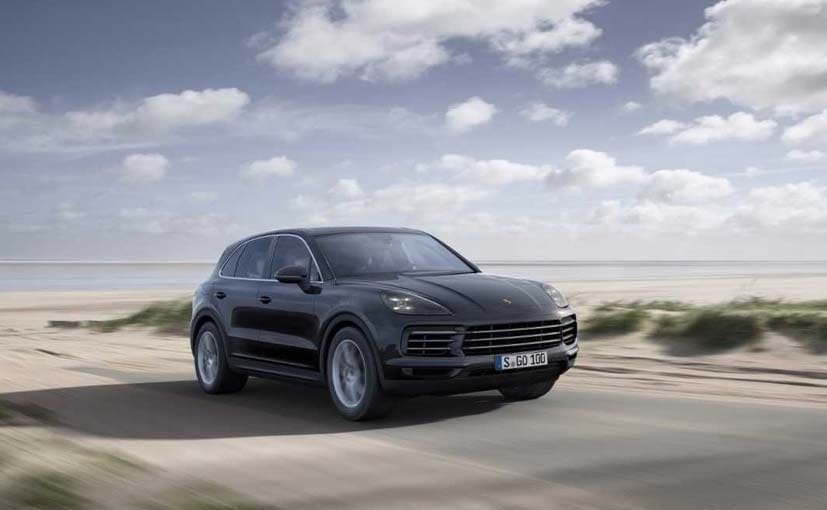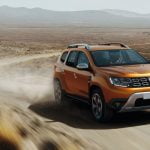
Porsche has finally unveiled the much awaited 2019 Cayenne in Stuttgart and will offer two models at launch- the Cayenne and Cayenne S. Both are powered by turbocharged six-cylinder engines. While the Cayenne has the ability to accelerate from zero to 100 kmph in just 5.9 seconds, the Cayenne S is able to accelerate to 100 kmph from a standstill in under 5 seconds. Moreover, the third-gen Porsche Cayenne has a newly-developed lighter weight chassis that contributes to an overall weight savings of up to 64 Kgs than the previous generation.
Compared to its predecessor, the new Cayenne integrates major technological and mechanical developments which enhance its performance. This starts with the chassis and progresses to a separated link design for the front axle, a multilink rear axle, and – for the first time with the Cayenne – staggered front and rear tire sizes ranging in diameter from 19 to 21 inches that help to improve on-road driving dynamics. The choice to use a staggered tire setup in this generation underscores the fact that the Porsche Cayenne is designed to be the sports car within its segment. Enhancing both agility at lower speeds and handling at high speeds, rear-axle steering is available as an option. At higher speeds, the rear wheels turn in phase with the front axle to provide a virtual lengthening of the wheelbase to improve road holding and directional control.
The new Cayenne retains a strong visual connection to its predecessors. At the same time, it adopts new design elements that hint at how this generation builds upon its predecessors. New horizontal light edges create a wider, more athletic appearance as do enlarged air intakes in the front fascia. When closed, the rear fascia features a new three-dimensional LED light design that features the Porsche logo spanning the width of the vehicle through a narrow strip of lights. Broadly speaking, LEDs are a main feature of the new Cayenne and are standard on all models. It also has an option to upgrade from the standard headlights to either the Porsche Dynamic Light System (PLDS) or LED Matrix Beam headlights, which also include PDLS.
At the heart of the 2019 Porsche Cayenne sits a 3.0-litre single-turbo V6 making 335 bhp and 450 Nm of torque, while the Cayenne S uses a 2.9-litre twin-turbo V6 that makes 433 bhp and 550 Nm of torque. A newly-developed eight-speed Tiptronic S transmission is standard across the Cayenne line. It offers improved comfort and quicker response times in its lower gear range for improved performance both on- and off-road. Four modes – Mud, Gravel, Sand, or Rocks are also available in both the variants. The drive mode, chassis settings, and differential locks can be selected to adapt to the relevant scenario. Fully variable Porsche Traction Management (PTM) all-wheel drive is standard on all Cayenne models.
The Porsche Surface Coated Brake (PSCB) technology is available as an option for all Cayenne models and consists of a cast-iron disc with a tungsten-carbide coating. The finish increases friction values while reducing wear and brake dust. The brakes will take on a visually glossy appearance complemented by white painted calipers. The PSCB system is only available in combination with 20-inch and 21-inch wheels. The Porsche Carbon Ceramic Brakes (PCCB) remains the top system available.
The newest version of Porsche Communication Management (PCM) also makes its way into the new Cayenne. At the heart of the new display and control concept from Porsche is the 12.3-inch full-HD touchscreen, launched last year with the new Panamera. Other buttons are integrated into the smartphone-like, glass-look touch surface, which gives acoustic and haptic feedback when operated. In typical Porsche style, the driver has a central analog tachometer to view. This is flanked by two 7-inch full-HD displays showing relevant driving data that can be selected and changed using the multi-function steering wheel. Lane Change Assist, Lane Keep Assist including traffic sign recognition, traffic jam assist, ParkAssist including Surround View, and Porsche InnoDrive including adaptive cruise control are also available.
[“source=auto.ndtv”]





